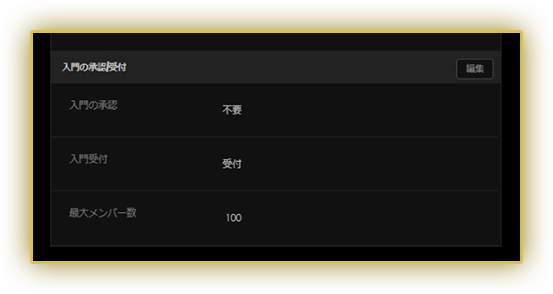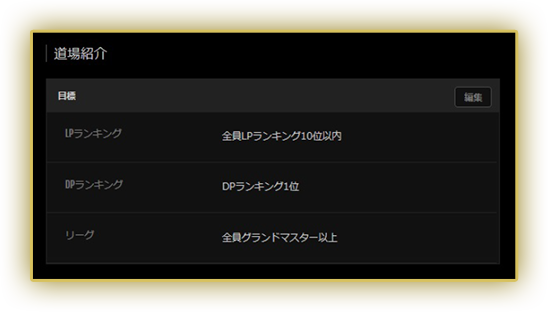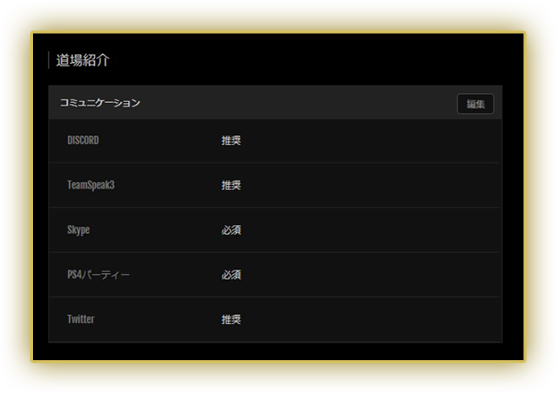Hour 14: The Basics of Combos: Cancels
Hello everyone, it's the skill smith and your SF Seminar lecturer, Mr. Bug here.
In this lecture I'd like to talk about cancels, a very important aspect of combos.
As covered in the previous lecture, the air combo system tends to change with each game, so the techniques I'm going to talk about here are essentially for grounded combos.
Cancels
If you perform a special move just as a normal move hits, and the special move overwrites the normal move's motion, we call this a cancel. This can also be referred to as a special move cancel, but usually just "cancel" will do.
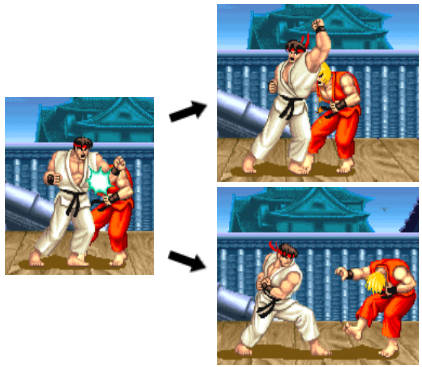
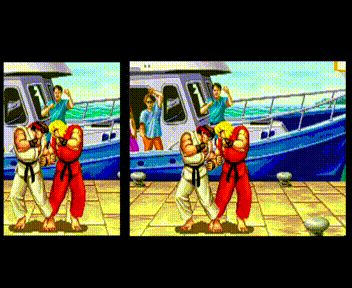 Overwrite the remaining motion of the move with the special move.
Overwrite the remaining motion of the move with the special move.
If you input the special move as soon as possible after the normal move, you can get the special move to come out as soon as the normal move ends (remaining active frames + recovery), but by using a cancel you can skip the whole remaining active frames/recovery and have the special move connect for a combo.
Though this differs by game, generally speaking, you can't cancel any part of the normal move - you can only cancel the moment the normal move hits. If your input spills over into the recovery, then the cancel won't come out.
Just hearing "it'll only come out the moment the normal move hits" makes it sound a lot more challenging than it actually is. "The moment the normal move hits" includes all of the hit stop time, so while that depends on the move, it's not like the timing is super-tight. So perhaps a better way of thinking of it is - special move cancels are performed during the hit stop. The longer the hit stop, the more time you will have to perform the special move cancel. As such, heavy attacks are easier to cancel than light attacks.
These cancels aren't something that was originally planned to be in the game. The original plan was to let special moves overwrite normal moves in order to make it easier to perform special moves. However, there were some moves with a startup that was faster than the overwrite time, and in these cases, the move would hit and then the special move would overwrite it. We felt that was interesting, so it was left in the game, and cancels were born.
As cancels were a by-product of the efforts to make special moves easier to perform, basically cancels are only possible going from normal moves to special moves. With certain specific exceptions, generally you can't perform cancels between two normal moves, from a special to a normal, or between two special moves. However, there are some unique moves that are cancelable.
While the moves that can be canceled are limited, you can perform any special move from the cancel. For example, Ryu's crouching MK is a cancelable move, so he can cancel this into Hadoken, Shoryuken, or Tatsumaki Senpukyaku.
To briefly sum up the fundamentals...
1: Not every normal move can be canceled, only the predetermined ones
2: Cancels can only be performed the moment the move hits
3: You can perform the command input during the hit stop
4: Cancels can only be performed from normal moves to special moves
5: Any special move can be performed from the cancel
Sometimes these fundamentals may change depending on the game - for example, a game where all normal moves are cancelable regardless of whether or not it hits - but let's just leave that at being particular to that game.
Kara Cancels
Canceling an attack that doesn't hit with a different action is called a kara cancel, from the Japanese word for "empty." These cancels aren't just limited to normal move -> special move, and include other actions.

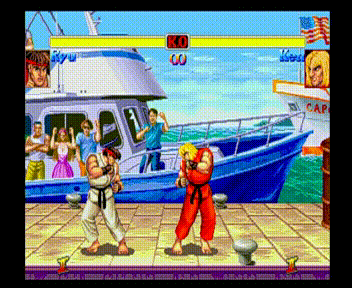 The Crouch MK is kara canceled before it hits.
The Crouch MK is kara canceled before it hits.
You might be thinking - what's the point of canceling it before it hits? Well, for the hardcore players, this type of cancel has various applications. But this is getting into more advanced stuff, so for now let's just leave it at that.
Chain (Renda) Cancel
There are some normal moves where the recovery of the attack can be canceled into the same attack. These are generally light attacks, and this is called chain (renda) cancels.
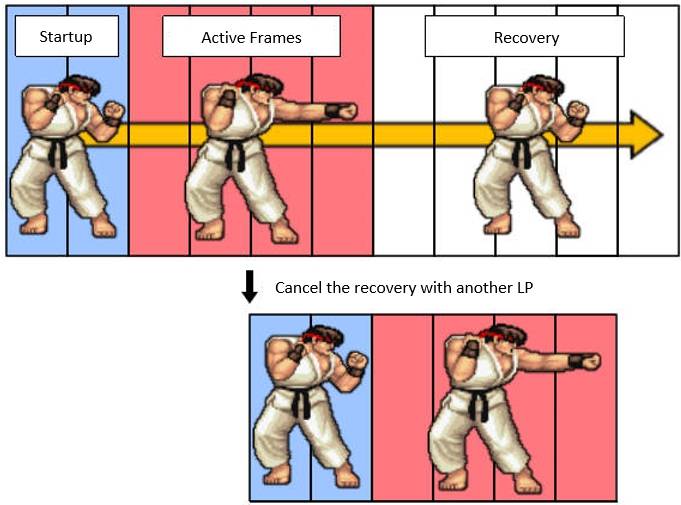
 With no recovery, chain cancel moves are pretty fast.
With no recovery, chain cancel moves are pretty fast.
Similar to regular cancels, only predetermined moves can be chain canceled, and compared to special move cancels, the cancel window is usually a lot more lenient.
There's a lot more involved with chain cancels, but getting into that territory things start to become title-specific, so if we just focus on the fundamentals, the important thing to take away is - the only move where its recovery can be canceled into the same move are light attacks, and this is called a chain cancel.
Review
Recently, more and more fighting games have been featuring systems that utilize some sort of cancel mechanic. Since this is all derivative of the special move cancel component, I think getting a good grasp of cancel fundamentals will have you better prepared to deal with these systems.
It might be a bit difficult to visualize how cancels work based just on an explanation of their components, so in the future I'd like to do a supplementary seminar on cancel tips, including the actual application of special move cancels.
See you again soon!

Writer








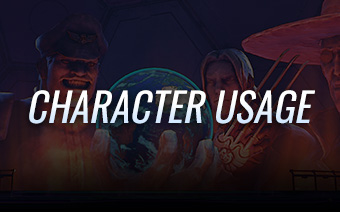












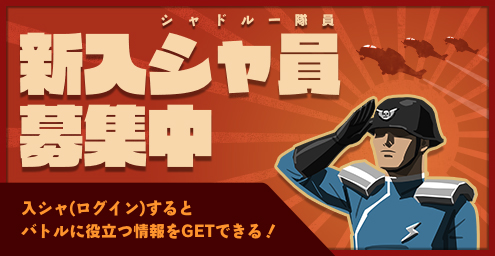



 PlayStation および
PlayStation および



















